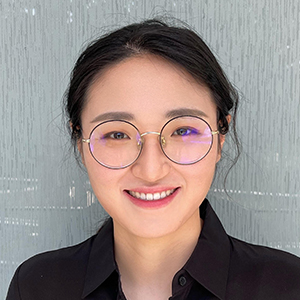Shared resources, such as cloud computing and communication networks, are widely used in large-scale real-time systems to increase modularity and flexibility. When multiple systems need to access a shared resource at the same time and the demands exceed the total supply, contention occurs. A scheduling strategy is required to determine which systems can access the resource first and resolve contentions. However, such a scheduling mechanism inevitably introduces time-varying delays and may degrade the system performance or even sabotage the stability of control systems.

Ningshi Yao,
George Mason University
Considering the coupling between the scheduling and control, this talk presents a novel sample-based method to co-design scheduling strategies and control laws for coupled control systems with shared resources, which aims to minimize the overall performance degradation caused by contentions. The co-design problem is formulated as a mixed integer optimization problem with a huge search space, rendering it difficult to compute the optimal solution. To solve this challenge, we develop a contention resolving model predictive control (CRMPC) method to design optimal scheduling and control in real-time dynamically. With fundamental assumptions in scheduling theory, the solution computed by CRMPC can be proved globally optimal. CRMPC is a general theoretical framework that can be applied to various applications in Cyber-Physical-Human systems. The effectiveness of CRMPC has been verified in many real-world applications, such as networked control systems, traffic intersection management systems, and human multi-robot collaboration systems. The performance of CRMPC was compared with well-known scheduling methods and demonstrated significant improvements.
Ningshi Yao is an Assistant Professor in the Department of Electrical and Computer Engineering at George Mason University. She received her Ph.D. in Electrical and Computer Engineering from the Georgia Institute of Technology in 2020, and her B.S. in Automatic Control from Zhejiang University, China, in 2014. Before joining Mason, she was a postdoctoral research fellow at Georgia Tech from November 2020 to July 2021. Her research focuses on control theory, real-time scheduling, robotics, cyber-physical systems, human–robot interaction, and machine learning. She is the recipient of multiple federal research grants, including support from the National Science Foundation (NSF), the National Institute of Health (NIH), and the Office of Naval Research (ONR), to advance theory and applications of autonomous systems and STEM education.